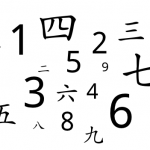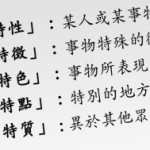Recent articles about how to learn Mandarin Page 41
-
Phonetic components, part 1: The key to 80% of all Chinese characters
At least 80% of all Chinese characters are made up of one semantic component (meaning) and one phonetic component (pronunciation). The sheer number of characters formed this way means that these characters ought to be taught properly, yet I think this topic is largely glossed over. This is the first article of two dealing with phonetic components and how they can help you learn Chinese better.
Read → -
Why manually adding and editing flashcards is good for you
Creating your own flashcard is not a waste of time, even if you can find the deck you want on the internet. I have created a fair number of public decks and wouldn’t have downloaded those decks even if they would have been available at the time. Creating your own flashcards gives you control over your deck and facilitates learning in many other ways.
Read → -
Why you need goals to learn Chinese efficiently
Learning without goals might seem like a reasonable choice at first, but after a closer look, it isn’t such a good idea. First, it’s hard to imagine not having any goal at all, so setting goals is more about making your implicit goals explicit. Second, focusing only on having fun will lead to some very unusual learning strategies.
Read → -
Do you really know how to count in Chinese?
Counting in a foreign language is one of the first things we learn, yet it takes very long to master numbers in Chinese. Most students abandon practising numbers too early, leading to a surprising and serious gap in our knowledge: we simply don’t know the numbers as well as we think we do, which will cause problems both in real life and in listening comprehension tests. Do you really know how to count in Chinese? Tests included!
Read → -
5 insights from the first year of a master’s program in Taiwan
Pursuing an academic degree taught in Chinese is a great example of instrumental motivation. This article contains five insights from my first year at the Graduate Institute for Teaching Chinese as a Second Language (華語文教學研究所) in Taipei, Taiwan. Among other things, the article is about grammar, native speakers, the importance of having fun and the essence of communicative learning.
Read → -
How to get good grades when studying Chinese
Ideally, we would study Chinese just because we want to and in any manner we see fit, but this isn’t how it works for most students. Instead, we need to care about tests and grades, an extra layer added on top of our own personal goals and ambitions. This article is about studying Chinese when those tests and grades really matter, a kind of basic survival guide for both exams and courses.
Read → -
The get-back-up-to-speed summer challenge
This is a challenge to encourage readers (and myself) to get more out of the remaining weeks of the summer. I have huge Anki and skritter queues and I plan to fight the down to zero before September 1st. You might need to study more vocabulary or you might have other things you want to complete this summer. Will you join the challenge?
Read → -
Role-playing as a way to expand your Chinese
When learning a language, we naturally become very good at what we do often, but expanding our knowledge beyond our personal sphere of experience is an essential step to take. Role-playing is a useful tool that can be employed to take this step. Practice with a friend and create new situations or new persons, all depending on which area you feel you need to improve in.
Read → -
Hacking Chinese: Contradictory and provoking?
This article is a reflection on my own writing on Hacking Chinese. I sometimes deliberately contradict myself, exaggerate a certain point or approach a question from a certain perspective. In short, critical thinking is essential, regardless if you read my articles or listen to other people’s advice.
Read → -
Dealing with near-synonyms in Chinese as an independent learner
Near-synonyms cause major headaches for language learners and it’s especially hard for Chinese learners due to the lack of adequate resources in English. This article suggests some ways of handling the problem of near-synonyms when learning Chinese.
Read →







